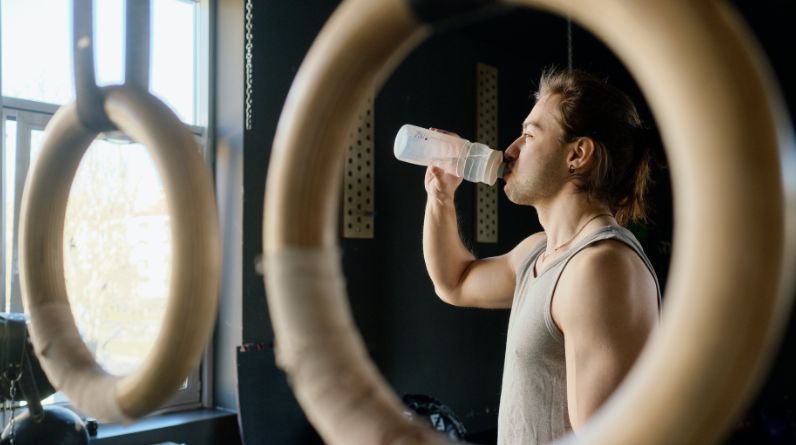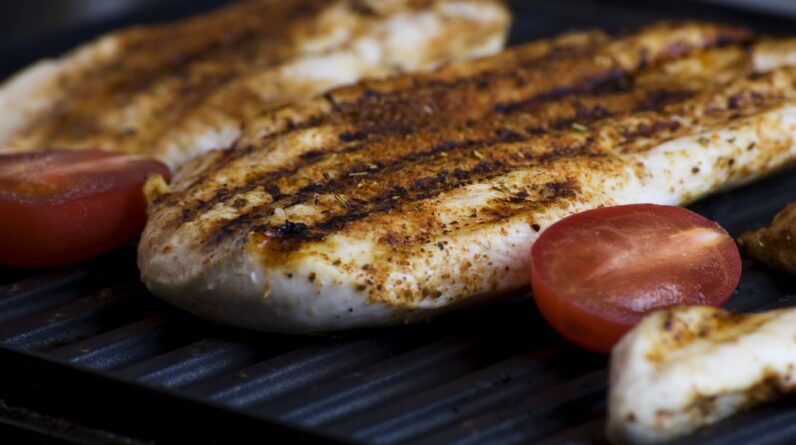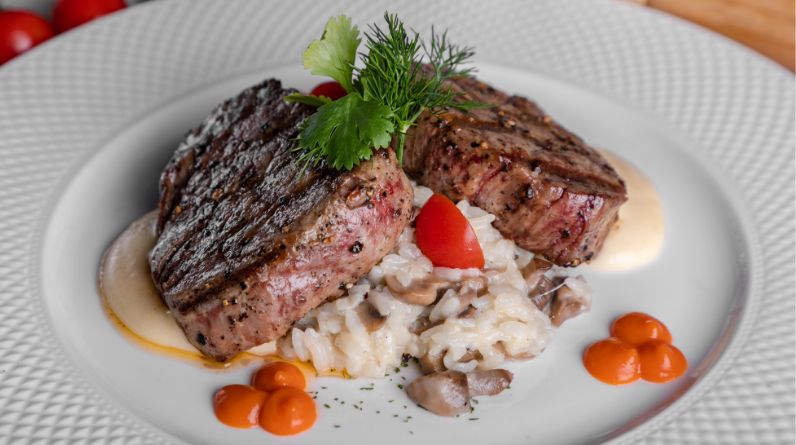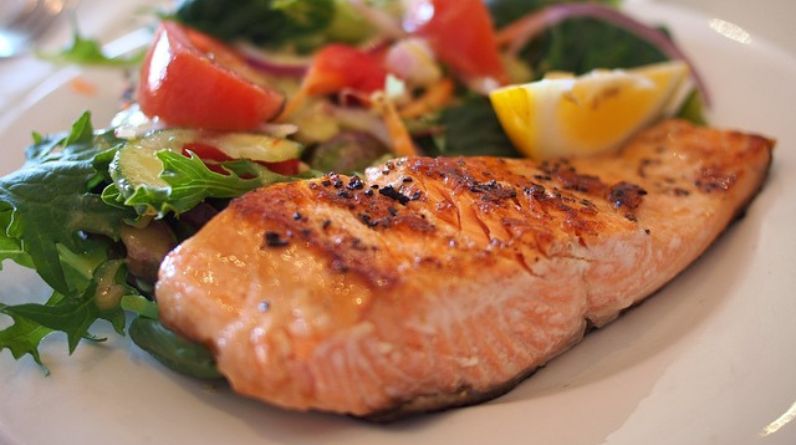
FUELING GAINS WITH THE GOOD STUFF
So, you’ve got your workout regimen properly tailored, and your protein intake is on point. But, what about fats? No, we’re not talking about the grease-drenched fast food variety; we’re diving into the world of healthy fats and why they’re your bodybuilding bestie. It’s time to debunk the myth that fats are the enemy and embrace them as a crucial part of your muscle-building journey.
The Skinny on Healthy Fats: Unsaturated Fat Unleashed
Alright, let’s cut through the grease and get the skinny on fats. They’re not all villains; some are downright heroes, especially for bodybuilders. Say hello to healthy fats, also known as unsaturated fats – they’re your secret weapon in the quest for muscle gains.
1. Monounsaturated Marvels
Imagine a lush avocado, a handful of nuts, or a drizzle of olive oil. What do they have in common? Monounsaturated fats are the kind that your heart can’t stop thanking you for.
These fats, found in foods like avocados, nuts, and olive oil, are the ultimate companions for your cardiovascular health. They waltz into your bloodstream and perform the extraordinary act of lowering bad cholesterol levels. Think of them as your body’s personal plumbers, unclogging those cholesterol-filled pipes.
But that’s not all – they’re calorie-dense, packing a hearty energy punch. When you need that extra oomph for your intense workouts, these fats have got your back. They’re like the high-octane fuel that powers a muscle car.
2. Polyunsaturated Powerhouses
Now, let’s dive into the world of polyunsaturated fats, where omega-3 and omega-6 fatty acids reign supreme. Picture a shimmering salmon, flaxseeds waiting to be sprinkled over your yogurt, or a handful of walnuts. These are your sources of polyunsaturated fats, and they’re pure gold for bodybuilders.
Omega-3s, the rock stars of this group, are celebrated for their anti-inflammatory prowess. They’re the firefighters of your body, rushing to put out the flames of inflammation that can sabotage your muscle recovery. Say goodbye to aches and pains after those grueling workouts, thanks to omega-3s.
But here’s the kicker – they’re not just about pain relief. Omega-3s also play a role in keeping your joints well-oiled and ready for action. Imagine your joints as well-tuned machines, never squeaking or grinding, even during the most strenuous workouts. Omega-3s make that possible.
Now, let’s not forget their sibling, omega-6s. While they might not have the same star status as omega-3s, they’re still essential. Omega-6s are like the trusty supporting actors, quietly playing their roles in maintaining your overall health.
The Bodybuilder’s Gold Mine: Tapping into Fats for Fitness
Fats as a gold mine for bodybuilders might sound counterintuitive, but stay with me; this treasure chest of nutrition holds secrets that can elevate your game.
1. Energy for Epic Workouts
Picture your energy reserves as a campfire. Carbs are like the kindling – they ignite quickly and burn brightly, but they’re short-lived. That’s where healthy fats come in. They’re the slow-burning logs that keep the fire alive long into the night.
During a workout, your body primarily uses carbohydrates for fuel. But when those carbs run low, fats step up to the plate. They’re a reliable backup generator that kicks in to ensure your energy levels remain stable. This means you can extend your workouts, add those extra reps, and push through the fatigue barriers. It’s like having an endless supply of fuel in your body’s gas tank.
For bodybuilders, this is the Holy Grail. Longer, more intense workouts equal more muscle fibers recruited and more gains made. Healthy fats, in this sense, are the key to unlocking your full workout potential.
2. Hormone Harmony
Now, let’s talk hormones – the maestros orchestrating the grand symphony of muscle growth. One hormone in particular steals the spotlight: testosterone. It’s the muscle-building kingpin, and every bodybuilder wants it on their side.
Healthy fats are the conductors of hormone harmony. They ensure that your body’s hormonal orchestra plays in perfect tune. In essence, they help maintain the right balance of hormones, including testosterone. This hormonal equilibrium is critical for muscle growth, strength gains, and overall fitness success.
Think of healthy fats as the backstage crew, working tirelessly to ensure that every note in your muscle-building symphony is pitch-perfect. Without them, the harmony might falter, and your progress could be out of tune.
3. Joint Lubrication
In the world of bodybuilding, staying injury-free is a top priority. Joint health is paramount, and this is where the magic of omega-3 fatty acids comes into play.
Omega-3s are like the oil that keeps the machinery of your joints running smoothly. They possess remarkable anti-inflammatory properties, which means they can reduce the wear and tear on your joints caused by intense training. They act as the soothing balm for those achy, overworked joints, ensuring they stay well-lubricated and ready for action.
Bodybuilders often push their joints to the limit, lifting heavy weights and engaging in strenuous exercises. Omega-3s can be your silent saviors, guarding against joint pain and injury, and allowing you to keep pursuing your muscle-building dreams without interruption.
4. Nutrient Absorption
Ever wonder why that salad with a drizzle of olive oil feels so satisfying? It’s not just about taste; it’s about nutrient absorption. Certain vitamins, such as A, D, E, and K, are fat-soluble. This means they need fats to be properly absorbed by your body.
Healthy fats act as the carriers, escorting these vitamins to where they’re needed most. Without fats, these vitamins might pass through your system without getting a chance to work their magic. So, that salad isn’t just a plate of greens; it’s a nutrient powerhouse, thanks to the fats that help your body absorb those essential vitamins.
In the bodybuilding world, every nutrient counts. Fats, often underestimated, play a crucial role in ensuring that you get the maximum benefit from the vitamins and minerals you consume.
Balancing Act: The Fine Art of Fats
Now that we’ve uncovered the hidden treasures of healthy fats, it’s time for a reality check – a balancing act, if you will. While fats are undoubtedly beneficial, they’re also calorie-dense, which means overindulging can tip the scale in the wrong direction. Here’s how to strike that harmonious balance:
Portion Control: Imagine your plate as a canvas, and your meal as a masterpiece in the making. Just as an artist carefully selects the right amount of paint for each stroke, you need to pay attention to serving sizes, especially when dealing with calorie-dense foods like nuts and avocados.
While these foods offer a wealth of nutritional benefits, it’s easy to lose track of portions, especially when they taste so good. Just keep in mind that a little goes a long way. Nuts, for instance, are packed with healthy fats, but a small handful is often sufficient to satisfy your cravings and provide all the goodness they offer.
Diversify Your Sources: Just as a diversified investment portfolio helps safeguard your financial future, diversifying your sources of healthy fats safeguards your nutritional future. Don’t put all your eggs (or avocados) in one basket.
Mix it up with a variety of fats from different sources. Incorporate an array of nuts, seeds, oils, and fatty fish into your diet. Each source brings its unique blend of healthy fats and additional nutrients to the table. This not only keeps your taste buds engaged but also ensures you receive a broad spectrum of health benefits.
Mind the Total Calories: Calories, those sneaky units of energy, play a pivotal role in your nutritional journey. Even though we’re singing the praises of healthy fats, they’re not exempt from the calorie count. In fact, they can pack quite a punch.
If you’re on a strict calorie-controlled diet, whether for muscle-building or weight management, remember that fats, even the virtuous kind, contribute significantly to your daily intake. So, make sure they fit comfortably within your overall calorie goals.
Balancing your calorie intake is like managing a budget – allocate wisely to ensure you have enough resources for all your needs. Healthy fats are an essential part of this budget, but they shouldn’t overshadow the other valuable nutrients your body requires.
Conclusion
The journey to muscle gain isn’t just about lifting weights and devouring protein; it’s about recognizing the role of healthy fats. These unsung heroes play multiple crucial roles, from providing sustained energy during workouts to maintaining hormonal balance and safeguarding joint health. It’s not about avoiding fats but about understanding their significance and striking a balance that fuels your gains without tipping the scale in the wrong direction. So, next time you’re crafting your plate, let healthy fats take center stage in this symphony of nutrition.
Frequently Asked Questions
1. Do fats make you fat?
The age-old myth that fats make you fat has been debunked. It’s not fats themselves but excess calories that lead to weight gain, whether they come from fats, carbohydrates, or protein. Healthy fats, when consumed in moderation, are a crucial part of a balanced diet. In fact, they offer numerous benefits, from supporting overall health to fueling intense workouts. So, don’t fear fats – just be mindful of your overall calorie intake.
2. Can I eat fatty foods every day?
Absolutely, but remember the golden rule – moderation is key. While healthy fats should be part of your daily diet, portion control is vital. Overindulging in calorie-dense foods like nuts or avocados can lead to excess calorie intake. So, enjoy fatty foods every day, but do so with an understanding of portion sizes. This way, you can reap the benefits without tipping the calorie scale.
3. What’s the deal with omega-3 fatty acids?
Omega-3 fatty acids, often found in fatty fish like salmon and certain seeds like flaxseeds, are nutritional powerhouses. They’re renowned for their anti-inflammatory properties, making them a go-to choice for supporting joint health and overall well-being. Including omega-3-rich foods in your diet can help reduce inflammation, enhance cardiovascular health, and even support cognitive function. So, when it comes to omega-3s, consider them the superheroes of healthy fats.
4. Can I cook with healthy fats?
Absolutely! Healthy fats like olive oil are not only suitable for cooking but can also elevate the flavor of your meals. Olive oil, for example, is a versatile cooking companion that adds a delightful richness to everything from sautéed vegetables to grilled chicken. Cooking with healthy fats not only enhances taste but also provides the benefits of these fats. So, go ahead, drizzle that olive oil and savor the goodness it brings to your dishes.
5. How do healthy fats help with muscle recovery?
Healthy fats can play a significant role in muscle recovery, and here’s how: They possess anti-inflammatory properties that help reduce inflammation in your body. After a strenuous workout, your muscles may become inflamed and sore. Consuming healthy fats can aid in reducing this post-workout inflammation, allowing for quicker recovery. So, incorporating healthy fats into your diet can help you bounce back faster and continue making gains in the gym.
6. Can I eat nuts as a post-workout snack?
Absolutely! Nuts are not only a source of healthy fats but also pack a punch in the protein department. This makes them a convenient and nutritious post-workout option. The combination of healthy fats and protein in nuts can aid in muscle recovery and provide a sustained source of energy after your workout. So, the next time you’re looking for a quick and wholesome post-workout snack, grab a handful of nuts and enjoy the benefits they offer.
7. What’s the ideal ratio of fats to other macronutrients for bodybuilding?
There’s no one-size-fits-all answer to this question because the ideal ratio of fats to other macronutrients (like protein and carbohydrates) depends on various factors, including your overall calorie and nutrient needs, your specific goals, and your individual metabolism. A registered dietitian or nutrition expert can help you determine the optimal macronutrient ratio for your bodybuilding journey. It’s essential to customize your diet to meet your unique requirements.
8. Are there any downsides to healthy fats?
When consumed in moderation, healthy fats have numerous benefits and very few downsides. However, it’s crucial to remember that fats, even the healthy variety, are calorie-dense. This means they contain more calories per gram than protein or carbohydrates. While this isn’t necessarily a downside, it underscores the importance of portion control. Enjoy the benefits of healthy fats but be mindful of your calorie intake to maintain a balanced diet.
9. Can I still lose fat while eating healthy fats?
Yes, you absolutely can! Healthy fats can be part of a fat-loss diet when included in proper portions and as part of a balanced diet. In fact, they can aid in satiety and provide sustained energy, helping you stick to your calorie goals. When it comes to fat loss, the key is creating a calorie deficit, where you burn more calories than you consume. Healthy fats can be a valuable component of a diet that achieves this deficit while still offering essential nutrients and flavor.
10. What are some easy ways to include healthy fats in my meals?
Incorporating healthy fats into your meals can be deliciously simple. Here are a few simple methods to follow:
Sprinkle nuts or seeds on salads: A handful of almonds or a sprinkle of flaxseeds can add a delightful crunch and healthy fats to your greens.
Cook with olive oil: Use extra virgin olive oil for sautéing vegetables, drizzling over roasted dishes, or making flavorful salad dressings.
Add avocado slices to sandwiches: Creamy and rich, avocado slices are a perfect addition to sandwiches or wraps.
Snack on a handful of almonds: Almonds are a convenient and nutritious snack option, providing healthy fats and protein in a portable package. Grab a handful when you






